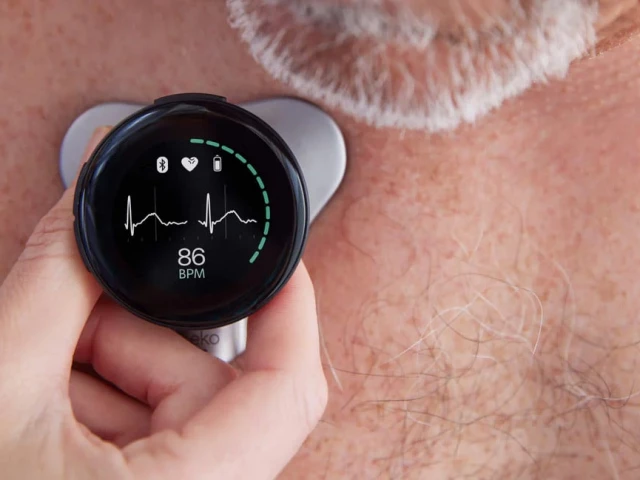AI stethoscope detects major heart conditions in seconds, says UK study
The AI stethoscope uses a card-sized sensor and microphone to detect heart sounds and blood flow beyond human hearing

A new generation of stethoscopes powered by artificial intelligence (AI) could transform the way doctors detect life-threatening heart conditions, according to researchers in the UK.
In what experts are calling a potential “game-changer,” a study led by Imperial College London and Imperial College Healthcare NHS Trust found that the AI-enabled device can identify heart failure, heart valve disease, and abnormal heart rhythms within seconds.
Unlike the traditional stethoscope invented in 1816, the updated model replaces the chest piece with a sensor about the size of a playing card. Using a microphone, it records subtle differences in heartbeat and blood flow that are imperceptible to the human ear. The device simultaneously performs an electrocardiogram (ECG), sending the data to the cloud, where it is analysed by AI trained on tens of thousands of patient cases.
Read More: Nvidia CEO Jensen Huang says AI boom far from over
According to BBC News, the study, involving more than 12,000 patients across 96 GP surgeries in west and north-west London, compared outcomes with 109 practices where the technology was not used. Results showed that patients with heart failure were 2.3 times more likely to receive a diagnosis within a year when examined using the AI stethoscope. Detection rates also improved significantly for abnormal heart rhythms (3.5 times higher) and valve disease (1.9 times higher).
Dr Sonya Babu-Narayan, clinical director at the British Heart Foundation and a consultant cardiologist, described the innovation as “an elegant example of how the humble stethoscope, invented more than 200 years ago, can be upgraded for the 21st century.” She stressed that early detection is critical: “Too often, these conditions are only identified at an advanced stage when patients present in emergency settings. With earlier diagnosis, people can access treatment sooner and live well for longer.”
The findings were presented at the European Society of Cardiology’s annual congress in Madrid, the world’s largest cardiology gathering. Following the successful trial, plans are underway to introduce the AI stethoscopes to GP practices in south London, Sussex, and Wales.



















COMMENTS
Comments are moderated and generally will be posted if they are on-topic and not abusive.
For more information, please see our Comments FAQ